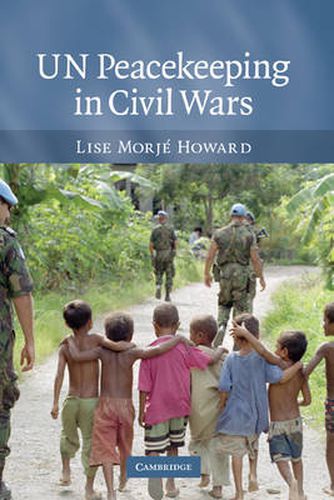Readings Newsletter
Become a Readings Member to make your shopping experience even easier.
Sign in or sign up for free!
You’re not far away from qualifying for FREE standard shipping within Australia
You’ve qualified for FREE standard shipping within Australia
The cart is loading…






Civil wars pose some of the most difficult problems in the world today and the United Nations is the organization generally called upon to bring and sustain peace. Lise Morje Howard studies the sources of success and failure in UN peacekeeping. Her in-depth 2007 analysis of some of the most complex UN peacekeeping missions debunks the conventional wisdom that they habitually fail, showing that the UN record actually includes a number of important, though understudied, success stories. Using systematic comparative analysis, Howard argues that UN peacekeeping succeeds when field missions establish significant autonomy from UN headquarters, allowing civilian and military staff to adjust to the post-civil war environment. In contrast, failure frequently results from operational directives originating in UN headquarters, often devised in relation to higher-level political disputes with little relevance to the civil war in question. Howard recommends future reforms be oriented toward devolving decision-making power to the field missions.
$9.00 standard shipping within Australia
FREE standard shipping within Australia for orders over $100.00
Express & International shipping calculated at checkout
Civil wars pose some of the most difficult problems in the world today and the United Nations is the organization generally called upon to bring and sustain peace. Lise Morje Howard studies the sources of success and failure in UN peacekeeping. Her in-depth 2007 analysis of some of the most complex UN peacekeeping missions debunks the conventional wisdom that they habitually fail, showing that the UN record actually includes a number of important, though understudied, success stories. Using systematic comparative analysis, Howard argues that UN peacekeeping succeeds when field missions establish significant autonomy from UN headquarters, allowing civilian and military staff to adjust to the post-civil war environment. In contrast, failure frequently results from operational directives originating in UN headquarters, often devised in relation to higher-level political disputes with little relevance to the civil war in question. Howard recommends future reforms be oriented toward devolving decision-making power to the field missions.